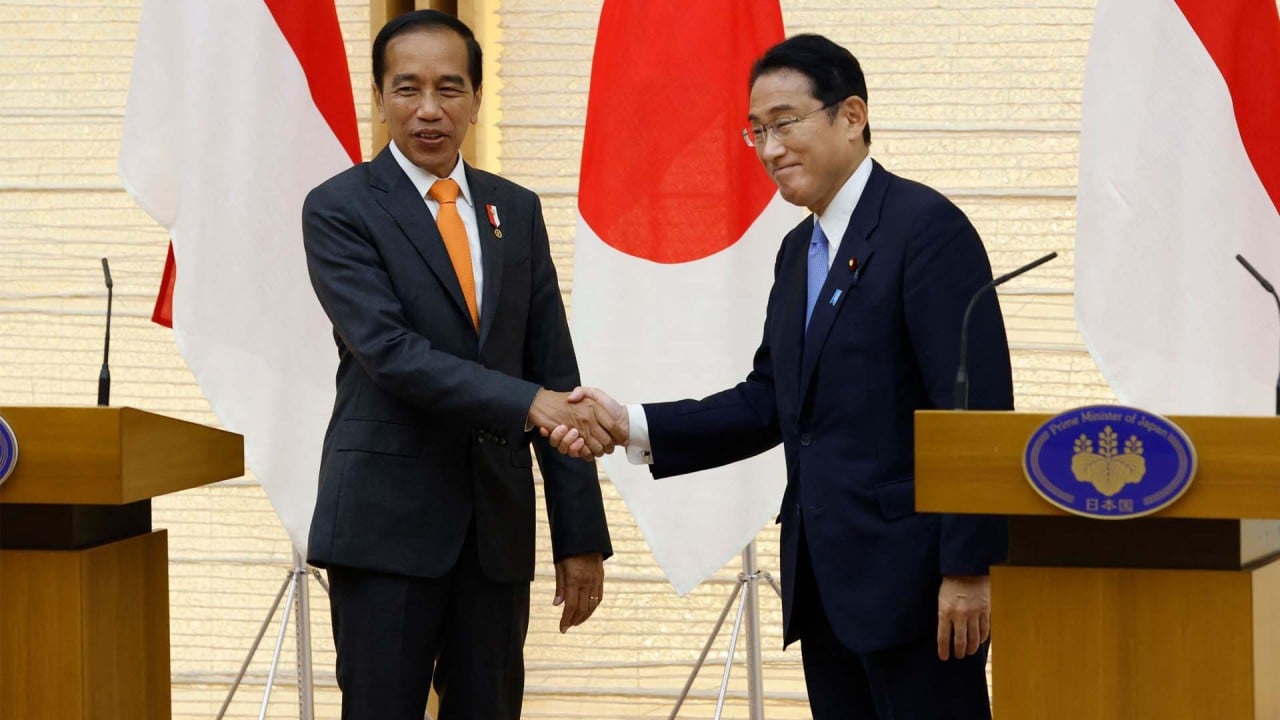
Should China worry about Japan’s proposed rise in defence spending?
- Budget request covers acquisition of more than 100 items, including upgrades to missile interception systems
- If approved, expenditure would exceed constitutional cap of 1 per cent of GDP
The request amounts to a 1.1 per cent increase in annual spending and would cover the purchase or production of more than 100 items, including domestically developed Type 12 surface-to-ship missiles, projected to be able to hit the coasts of China and North Korea.
The spending would also go on six SH-60L anti-submarine patrol helicopters and surveillance vessels, and upgrades to Japan’s ability to intercept missiles, such as equipment for the new Aegis-equipped vessels that can block ballistic missile attacks.
Under its constitution, Japan has capped defence spending at 1 per cent of its GDP for the past 50 years.
The budget request comes amid long-standing, persistent tensions between Japan and China over the disputed Senkaku Islands, known in China as the Diaoyus, as well as frictions with Russia over the Kuril Islands and threats from North Korea’s missile tests.
“China continues to threaten to use force to unilaterally change the status quo and is deepening its alliance with Russia,” the Japanese ministry said in the budget request.
In the aftermath of Pelosi’s trip, a cross-party delegation from Japan visited the island, accusing Beijing of provocation towards Taiwan and affirming the willingness of Japan and the US to work with Taiwan to deter mainland China.
China and Japan agree more talks needed to manage tension over Taiwan
Sun Wenzhu, a Japan specialist at the China Institute of International Studies, said Japan’s plan to buy new weapons, especially longer-range missiles, was aimed at helping the United States to contain China.
Having its own long-range missiles also gave a wary Japan “bargaining power” with the US, which seeks to deploy medium-range missiles on Japanese soil.
Sun also said the budget increase would have little impact on China’s overall defence policy, which was “aimed at safeguarding its own sovereignty, security and development interests”.
But there were cases in which China would take countermeasures, she said.
“If Japan colluded with the United States, by means of ‘nuclear sharing’ or deployment of intermediate missiles, it would seriously threaten the security of regional countries,” she said.
“And [if it] even tried to collude with Taiwan independence forces, undermine China’s territorial integrity, and interfere in China’s sovereignty and internal affairs, China must resolutely oppose and counter.”
Retired Chinese colonel Yue Gang said Japan had been using its alliance with the US to intervene more in regional affairs.
“It has coerced the US to threaten its neighbours – China, Russia, and North Korea, and has become a new source of turmoil,” Yue said.
He said Japan was seeking to acquire “strategic offensive weapons” and China would “continuously improve its defence capabilities” to “deter Japan’s possible military adventures”.
Beijing said the proposed defence budget sent a “dangerous signal” to the world and urged Tokyo to respect the concerns of its Asian neighbours.
“Japan has repeatedly hyped up the ‘China threat’ and continued to develop its missile programme and so-called counter strike capabilities,” the Chinese foreign ministry said.
“It is creating an excuse for building an offensive military force. It hides [its] ambition to break through the shackles of the ‘peace constitution’ and return to the old path of military expansion.”
Thomas Wilkins, an Indo-Pacific specialist at the Australian Strategic Policy Institute, said most observers viewed Japan’s augmented defence posture as a “measured response” to the increasing pressures it faced in the region.
“Beijing will likely view increases in defence spending and the acquisition of new capabilities by Japan as unwelcome, but this must be set against the far more significant spending by China and the improvement of the capabilities of the People’s Liberation Army,” he said.
In absolute terms, Japan ranked ninth in the world in 2021 in military spending, with the US first and China second, according to data from the Stockholm International Peace Research Institute. Japan’s final spending that year amounted to 1.1 per cent of its GDP, while China’s outlay was 1.7 per cent of its GDP.

 - Kawala Xie.jpg?itok=NogZcyZ-&v=1661304068)
